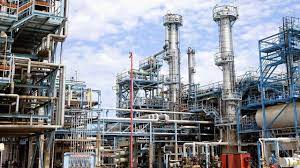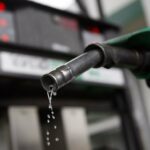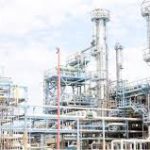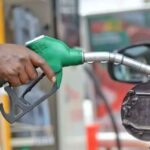The Nigerian National Petroleum Company Limited (NNPCL) has announced that a test-run on the 60,000-bpd Port Harcourt refinery will be completed this month.
The NNPCL’s spokesperson, Femi Soneye, said that the testing would be finished soon to ensure the refinery’s efficient operation.
“This stage will be completed this month,” Soneye told Reuters.
The refinery, which is now undergoing repairs, is set to reopen with a processing capacity of 60,000 barrels per day.
Later this year, the NNPCL plans to attain its maximum capacity of 210,000 barrels per day.
Surveillance contract: Igbo Youths Not Marginalized, Group Tells FG, NNPCL
EFCC visits Dangote Group headquarters, probes forex allocations
The refineries at Port Harcourt are part of Nigeria’s state-owned refineries, which have remained idle for some time.
However, as part of a plan to reduce the country’s reliance on imported refined products, the government is working to revitalize these refineries.
In December, the NNPCL announced that the Area 5 component of the Port Harcourt refinery had been completed successfully, including mechanical completion and flare start-up.
In March 2021, the federal government approved a $1.5 billion deal to reopen the Port-Harcourt refinery, which has a capacity of 210,000 barrels. The rehabilitation project was assigned to the Italian company Tecnimont SPA, which was to be completed in three phases over 18, 24, and 44 months.
Furthermore, the CEO of the NNPCL has stated that the second phase of the Port-Harcourt refinery’s rehabilitation work will be finished by the fourth quarter of 2024.
Since the removal of the fuel subsidy in June, petrol prices have soared by more than 200%, increasing transportation costs for the average Nigerian.
In recent years, Nigeria has attempted to limit the importation of petroleum products in order to decouple fuel expenses from the volatility of the foreign exchange market while also keeping prices under control.
The Dangote refinery, with a capacity of 650,000 barrels per day, is part of the Federal government’s plan to eliminate gasoline imports, as are refineries in Kaduna and Warri, which are set to reopen by the end of 2024.

 Join Daily Trust WhatsApp Community For Quick Access To News and Happenings Around You.
Join Daily Trust WhatsApp Community For Quick Access To News and Happenings Around You.


